Archive for July, 2010
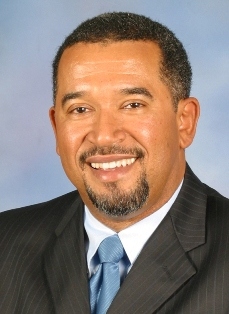
NIC on the hunt for new investors
 (CNS): The recently formed National Investment Council (NIC) said this week that it has now met the people involved with more than a dozen new projects, ranging from tourism products and fund administration to the information technology arena, and evaluated those projects. NIC Chairman William Peguero said the council’s goal was to co-ordinate Cayman’s various business sectors and government policies to encourage new investment. He said the NIC was exploring viable strategies to stimulate and grow Cayman’s economy to generate new forms of revenue.
(CNS): The recently formed National Investment Council (NIC) said this week that it has now met the people involved with more than a dozen new projects, ranging from tourism products and fund administration to the information technology arena, and evaluated those projects. NIC Chairman William Peguero said the council’s goal was to co-ordinate Cayman’s various business sectors and government policies to encourage new investment. He said the NIC was exploring viable strategies to stimulate and grow Cayman’s economy to generate new forms of revenue.
“All business sectors are interconnected and there has to be a collaborative effort between the macroeconomic policies that are being developed by the government and the policies and procedures implemented by business agencies,” Peguero said. “The goal of the NIC is to align both public and private sector demands to open the doors for increased revenue to the islands.”
Transparency in investment policies, efficiency in investor facilitation and improvement in the investor approvals process is essential to boosting confidence in the jurisdiction, the council believes. It aims to meet those needs by facilitating the formulation of policy guidelines on foreign investment in all sectors of the economy, reviewing applications submitted by investors, providing recommendations to investors, monitoring application progress, providing assistance with resolving problems pertaining to investment projects and establishing procedures to ensure effective coordination between the relevant government agencies and boards, a statement from the council revealed.
It did not say, however, how close the council was to recruiting any new investors to the islands or to the implementation of any specific private sectors projects that would generate new cash for government coffers.
The statement said that since the council’s formation at the start of this year, members have aggressively been evaluating measures to generate new forms of revenue and have actively been strategizing on ways to draw new commerce and investment to the country.
“We are positive that our collaborative approach and support of both the private and public services will help us meet pressing demands and set a strong economic foundation that will position Cayman for economic success into the future,” Peguero added.
The NIC is an integrated body of key business leaders designed to bridge the gap across Cayman’s various business sectors. Intended to gather input and recommendations from different organisations, boards and committees its goal is to create an economic blueprint to move Cayman forward.
The council members are James Bergstrom, Michael Ryan, Burns Conolly, Marcus Cumber, Jim O’Neill and Dax Basdeo and reports to a special Cabinet Committee, chaired by Premier McKeeva Bush and supported by the Investment Advisory Committee (IAC), which consists of senior civil servants across immigration, planning, environment, employment relations, customs, tourism, financial services and agriculture.
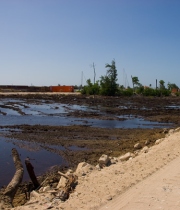
Dragon Bay canals too deep
 (CNS): Following revelations that the developer of the Ritz-Carlton was given planning permission to remove a 300 foot mangrove buffer zone on the Dragon Bay development site recently, an FOI request by a member of the public has now revealed that he has also been given planning permission for dangerously deep canals. The documentation reveals that the Central Planning Authority (CPA) gave the Dragon Bay developer permission to excavate a canal system as deep as 20 feet while remaining connected to the North Sound. The depth is more than double the maximum recommended and is described by the Department of Environment as a “dangerous precedent” with far reaching environmental consequences. (Photo by Dennie Warren Jr)
(CNS): Following revelations that the developer of the Ritz-Carlton was given planning permission to remove a 300 foot mangrove buffer zone on the Dragon Bay development site recently, an FOI request by a member of the public has now revealed that he has also been given planning permission for dangerously deep canals. The documentation reveals that the Central Planning Authority (CPA) gave the Dragon Bay developer permission to excavate a canal system as deep as 20 feet while remaining connected to the North Sound. The depth is more than double the maximum recommended and is described by the Department of Environment as a “dangerous precedent” with far reaching environmental consequences. (Photo by Dennie Warren Jr)
In a letter to the CPA chair written in November last year in the wake of the authority’s decision, the DoE Director Gina Ebanks-Petrie points out that it was a serious step backward in environmental considerations with respect to canals. “We believe this decision to be short sighted and one which will set a dangerous precedent with far reaching repercussions for the natural environment of the Cayman Islands,” Ebanks-Petrie wrote.
The director pointed out the copious research which revealed that canals dug beyond 9 feet, as recommend by the Wickstead Report as far back as 1976, showed serious environmental problems, from negative impacts on water quality to the reduction of biodiversity. Local recommendations on canal depths are based on efforts to safeguard water quality and the marine life that they would be connected to. The director pointed out to the planning chair that they were based on sound and rigorous scientific research. In the US more recent research indicates that canal systems should be limited to six feet.
The letter also noted that with years of canal development in the North Sound area there was an even greater need to restrict depths than ever before rather than extending them the as the CPA had done with the Dragon Bay development. The director requested an opportunity to talk to the CPA about the decision and present them the full details of why the decision was dangerously detrimental, which the CPA accepted. Despite the case made by the DoE, however, the planning permission was not reversed and developer still has permission to dig the dangerously deep canals.
According to the FOI documents, which were released by the Water Authority, the Aggregate Advisory Committee also wrote to the CPA pointing out that research regarding excavation pits had indicated they should never be connected to the sea and it said the aggregate policy was never intended to promote any kind of canal excavation beyond 14 feet that would be connected to the sea.
Scott Slaybaugh, chair of the committee and the author of the letter, wrote that connecting anything deeper than that to the sea would have “devastating impacts on marine natural resources”. He pointed out that the AAC was also guided by the 9 foot limit in the Wickstead Report when it cameto canals. Slaybaugh pointed out that research undertaken by the committee regarding inland excavation of 20 feet that would impact ponds revealed significant noxious odours and damage to the pond and surrounding areas, which might be an acceptable risk if the pond was not connected to the sea. “On the other hand, poor water quality in a pond connected to the sea has a much broader and unacceptable risk.”
The person who requested the information told CNS that he is still waiting for correspondence regarding this planning permission from the CPA.
Document released under FOI:
WA policy for excavations – final November 2002
CPA policy clarification on depth of excavation
DoE letter to CPA re Dragon Bay 18 Nov 2009
Register of Canal Works Permits – June 2010
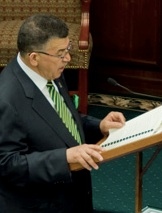
Mac introduces PADs
 (CNS): Although the passing of the amendments to the Development and Planning Law and the new regulations have caused some controversy, government, opposition and the independent member agree that a lot of the law is positive and will modernise the country’s future development, remove red tape and improve enforcement of regulations. It also introduces a new type of development that government says will facilitate modern, mixed use, urban projects. Delivering the amendments in the Legislative Assembly last week, the premier, who has responsibility for development and planning, announced the creation of planned area developments, or PADs, under section 6 of the law. (Photo by Dennie Warren JR)
(CNS): Although the passing of the amendments to the Development and Planning Law and the new regulations have caused some controversy, government, opposition and the independent member agree that a lot of the law is positive and will modernise the country’s future development, remove red tape and improve enforcement of regulations. It also introduces a new type of development that government says will facilitate modern, mixed use, urban projects. Delivering the amendments in the Legislative Assembly last week, the premier, who has responsibility for development and planning, announced the creation of planned area developments, or PADs, under section 6 of the law. (Photo by Dennie Warren JR)
“My government’s amendments to the law will enable and facilitate public-private fostering of worldwide trends in planning and urban design and to allow the proper regulation of the larger developments,” Bush explained. “Planned Area Developments, PADs, are larger master-planned, mixed use developments with a minimum of 40 acres of land and at least three different land uses that, subject to regulations regarding application requirements, will help ensure that large developments employ sound principles of effective and efficient land-use planning.”
The goal, the premier said, was to ensure that the larger developments become more transparent to the Central Planning Authority and the country and that they are developed in such a way to minimize their impacts on the surrounding infrastructure and neighbours. “PADs legislation is now needed to deal with the larger, mixed use developments that we are seeing coming to our islands,” Bush stated.
Planned area developments, also referred to in some jurisdictions as ‘planned unit developments’, have been proposed by the Planning Department for many years, and Bush said he was proud to have finally brought this concept to the House for inclusion in the planning regulations. “Many countries have moved to allow planned area developments, which provide a more completely designed and sustainable style of development,” the country’s premier told the Legislative Assembly.
Bush said these developments would be required to cover a minimum 40 acres of land or a group of contiguous parcels, have three different land uses proposed for close interaction, provision of up to 5 percent land for open space to serve the development, an internal circulation network that minimizes conflicts with existing public roads, and have the necessary infrastructure and services that will minimize the impact on the islands’ existing infrastructure.
PADS are also restricted from being dangerous, obnoxious, toxic or cause offensive odours or conditions or create a nuisance or annoyance to adjacent properties, as well as complying with all applicable regulations regarding fire, health and public safety. The premier said they will be permitted in all areas, except industrial, public open space and mangrove buffer zones.
Developers of PADs will be required to submit a ‘development statement’ to set out to the CPA the development parameters, including appropriate plans to explain the proposed development and its overall design, infrastructure impact, proposed land use, covering everything from parking lots and street furniture to sewage disposal systems and telecommunication facilities, as well as the timeframe for the project.
This will ensure that future PADS will be more transparent to the wider public from inception and the developments will be monitored in accordance with their submitted statements.
“If the CPA approves a planned area development, the authority shall require a copy of the approved master plan, together with the approved planning statement, to be lodged with the director of planning, who shall keep a register of all approved planned area developments,” Bush said.
The premier revealed that the fee for such developments would be $500 per acre, but this would be merely for the review of the PAD application. He said regular planning, building control and infrastructure fees would still apply on application for specific buildings within the planned area development.

On line advertising to boost Google profits
 (WSJ): Google Inc. (GOOG) is expected to report sharp gains in second-quarter profit and sales after the market’s close Thursday, as the Internet search giant is seen benefiting from a sustained pickup in online advertising. Wall Street is generally banking on a continued uptick in online advertising during the quarter, which should benefit Google as the leading provider of relatively affordable online-search advertisements. In addition, Google boasts a growing online display-advertising business, which may also benefit from an increase in spending during the first half of this year.
(WSJ): Google Inc. (GOOG) is expected to report sharp gains in second-quarter profit and sales after the market’s close Thursday, as the Internet search giant is seen benefiting from a sustained pickup in online advertising. Wall Street is generally banking on a continued uptick in online advertising during the quarter, which should benefit Google as the leading provider of relatively affordable online-search advertisements. In addition, Google boasts a growing online display-advertising business, which may also benefit from an increase in spending during the first half of this year.

Fat causes memory loss in pearshaped women
 (CNN): A woman’s body shape may play a role in how good her memory is, according to a new study. The more an older woman weighs, the worse her memory, according to research released this week from Northwestern Medicine at Northwestern University in Evanston, Illinois. The effect is more pronounced in women who carry excess weight around their hips, known as pear shapes, than women who carry it around their waists, called apple shapes. The reason pear-shaped women experienced more memory and brain function deterioration than apple-shaped women is likely related to the type of fat deposited around the hips versus the waist.
(CNN): A woman’s body shape may play a role in how good her memory is, according to a new study. The more an older woman weighs, the worse her memory, according to research released this week from Northwestern Medicine at Northwestern University in Evanston, Illinois. The effect is more pronounced in women who carry excess weight around their hips, known as pear shapes, than women who carry it around their waists, called apple shapes. The reason pear-shaped women experienced more memory and brain function deterioration than apple-shaped women is likely related to the type of fat deposited around the hips versus the waist.
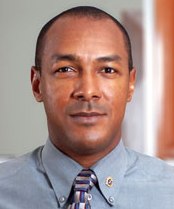
All change for ‘All talk’ and email
 (CNS): Local telecommunications provider LIME has announced a number of changes to its services and packages. The All Talk package which offered LIME customers 6,000 minutes a month to any LIME number is splitting into minutes, texts and internet space, while Google is now hosting LIME’s email platform. Anthony Ritch, LIME General Manager, said the new partnership with Google will not only provide access to email but many new portal features for customers. Over the last few weeks LIME residential internet customers have been moved across to the new platform which explains recent glitches in service.
(CNS): Local telecommunications provider LIME has announced a number of changes to its services and packages. The All Talk package which offered LIME customers 6,000 minutes a month to any LIME number is splitting into minutes, texts and internet space, while Google is now hosting LIME’s email platform. Anthony Ritch, LIME General Manager, said the new partnership with Google will not only provide access to email but many new portal features for customers. Over the last few weeks LIME residential internet customers have been moved across to the new platform which explains recent glitches in service.
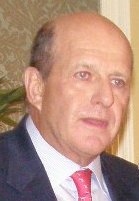
Cayman ready to benefit from high tax UK
 (CNS): In the wake of recent comments about Cayman’s possible demise, the chair of Cayman Finance has said that Cayman’s financial services sector is robust and poised to take advantage of Britain’s and other European states’ high tax regimes. Anthony Travers said that far from “withering on the vine”, the Cayman Islands is flourishing in the current economic climate, which, he said, was understandable given that no Cayman Islands financial institution failed in the financial meltdown. With zero percent income, capital gains and corporate tax, the jurisdiction is drawing particular interest from Britons thinking of leaving the UK, Travers believes.
(CNS): In the wake of recent comments about Cayman’s possible demise, the chair of Cayman Finance has said that Cayman’s financial services sector is robust and poised to take advantage of Britain’s and other European states’ high tax regimes. Anthony Travers said that far from “withering on the vine”, the Cayman Islands is flourishing in the current economic climate, which, he said, was understandable given that no Cayman Islands financial institution failed in the financial meltdown. With zero percent income, capital gains and corporate tax, the jurisdiction is drawing particular interest from Britons thinking of leaving the UK, Travers believes.

Wildlife group calls on bird lovers for help
 (CNS): As a result of the departure of a number of their valued volunteers, Cayman Wildlife Rescue urgently needs people to hand raise rescued baby birds for release back into the wild. The group needs people who can be at home with the birds all day and can feed them every hour from sun up-to sun down and can house them in a quiet secure environment. A two month commitment is needed and once the birds are raised they will be released into the wild at the volunteers’ homes. Alison Corbett, Programme Manager said it is hard work but very rewarding and called on the community to help.
(CNS): As a result of the departure of a number of their valued volunteers, Cayman Wildlife Rescue urgently needs people to hand raise rescued baby birds for release back into the wild. The group needs people who can be at home with the birds all day and can feed them every hour from sun up-to sun down and can house them in a quiet secure environment. A two month commitment is needed and once the birds are raised they will be released into the wild at the volunteers’ homes. Alison Corbett, Programme Manager said it is hard work but very rewarding and called on the community to help.

Democratic process eroding
 (CNS): The government is closing down debate, not just in the legislative chamber but in the wider community, the opposition benches have said following the continued suspension of the usual twenty-one day discussion period on new legislation. Since taking office almost every new bill or amendment the UDP administration has tabled has come from Cabinet to the Legislative Assembly for vote in a matter of days rather than weeks, closing down the time politicians normally take to research proposed legislation as well as discuss it with their constituents. Arden McLean told CNS on Wednesday that this was a serious encroachment on the rights of the people to at least have their say on new laws. (Photo by Dennie Warren Jr)
(CNS): The government is closing down debate, not just in the legislative chamber but in the wider community, the opposition benches have said following the continued suspension of the usual twenty-one day discussion period on new legislation. Since taking office almost every new bill or amendment the UDP administration has tabled has come from Cabinet to the Legislative Assembly for vote in a matter of days rather than weeks, closing down the time politicians normally take to research proposed legislation as well as discuss it with their constituents. Arden McLean told CNS on Wednesday that this was a serious encroachment on the rights of the people to at least have their say on new laws. (Photo by Dennie Warren Jr)

Cayman funds still growing
 (CNS): Despite dire predictions for the Cayman Islands hedge fund industry reported in the Financial Times this week, local figures paint a very differentpicture. As of 30 June there were 9,486 funds in this jurisdiction, an increase of over one hundred on the previous quarter. Other good news is that so far this year, authorizations have outstripped terminations each and every month. Ingrid Pierce, partner and head of Walkers’ Hedge Fund Group in the Cayman Islands, said clients continue to have the utmost confidence in the Cayman Islands as the domicile of choice when it comes to hedge funds, and despite concerns to the contrary, very few funds have either redomiciled or determined to set up funds elsewhere.
(CNS): Despite dire predictions for the Cayman Islands hedge fund industry reported in the Financial Times this week, local figures paint a very differentpicture. As of 30 June there were 9,486 funds in this jurisdiction, an increase of over one hundred on the previous quarter. Other good news is that so far this year, authorizations have outstripped terminations each and every month. Ingrid Pierce, partner and head of Walkers’ Hedge Fund Group in the Cayman Islands, said clients continue to have the utmost confidence in the Cayman Islands as the domicile of choice when it comes to hedge funds, and despite concerns to the contrary, very few funds have either redomiciled or determined to set up funds elsewhere.